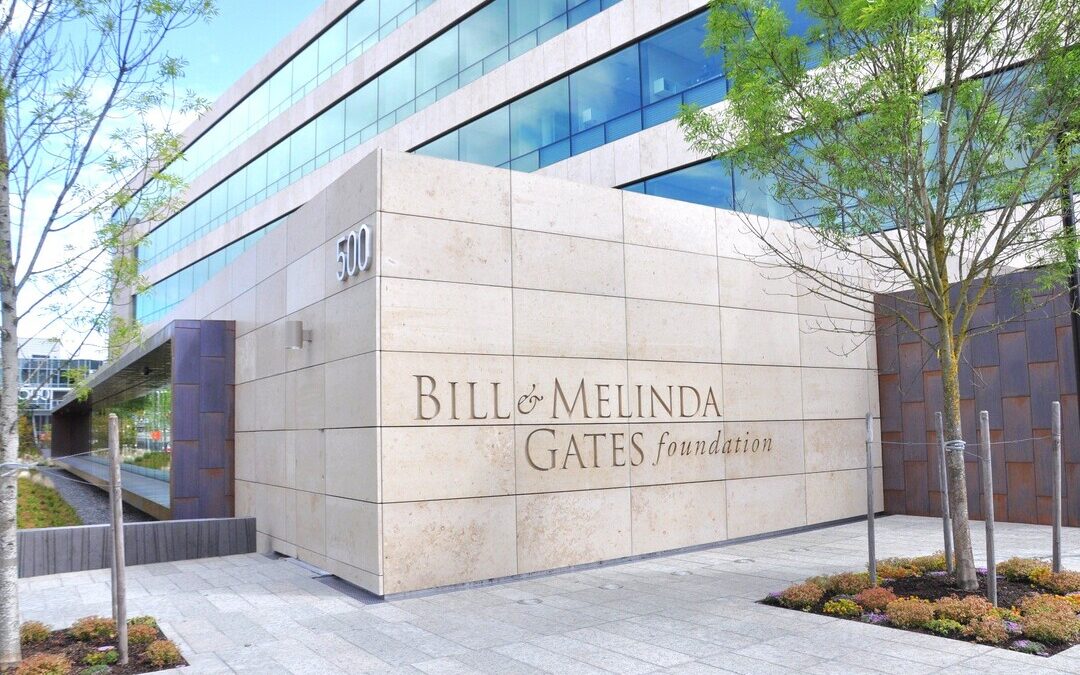Gates Foundation Commits $1.4B at COP30 to Boost Climate-Smart Farming
The Gates Foundation pledges $1.4 billion at COP30 to boost climate resilience for smallholder farmers worldwide.
The Bill & Melinda Gates Foundation on Friday announced a $1.4 billion, four-year commitment to help smallholder farmers in Africa and South Asia adapt to worsening climate shocks, marking one of the largest private investments in agricultural resilience.
Announced at the COP30 climate summit in Belém, the initiative will expand access to innovations that help farmers withstand droughts, floods and extreme heat.
The foundation’s goal is to strengthen food security in regions where farming sustains livelihoods yet remains acutely vulnerable to climate change.
Less than 1 percent of global climate finance currently targets such agricultural systems, according to the foundation.
“Smallholder farmers are feeding their communities under the toughest conditions imaginable,” said Bill Gates, the foundation’s chair. “We’re supporting their ingenuity with the tools and resources to help them thrive—because investing in their resilience is one of the smartest, most impactful things we can do for people and the planet.”
Tackling a Widening Funding Gap
Farmers in low-income countries produce one-third of the world’s food supply but face mounting climate pressures that threaten to reverse decades of development gains.
The foundation’s investment seeks to fill a persistent funding gap for adaptation that has left millions exposed to climate-driven hunger and poverty.
World Bank research shows that targeted climate adaptation can boost GDP in vulnerable economies by as much as 15 percentage points by 2050.
The World Resources Institute estimates that every dollar invested in adaptation yields over $10 in social and economic benefits within a decade.
“Climate adaptation is not just a development issue—it’s an economic and moral imperative,” said Mark Suzman, CEO of the Gates Foundation. “This new commitment builds on our support for farmers who are already innovating to withstand extreme weather. But they can’t do it alone—governments and the private sector must work together to prioritize adaptation alongside mitigation.”
Scaling Farmer-Led Innovation
The foundation’s new investment will scale locally driven, evidence-based solutions that strengthen rural livelihoods and food systems.
The funding will accelerate technologies already showing results, such as digital advisory platforms that deliver real-time weather data and planting guidance to farmers.
These tools, including the AIM for Scale initiative, are designed to reach 100 million farmers across Africa, Asia and Latin America by 2030.
The foundation will also expand research and deployment of climate-resilient crops and livestock bred to withstand drought, heat and emerging pests while maintaining yield and nutritional value. Another key focus will be soil restoration through innovations that improve fertility, productivity and carbon retention. A $30 million partnership with the Novo Nordisk Foundation will support scientific advances in this area.
Such interventions address a critical warning from the Intergovernmental Panel on Climate Change, which projects agricultural productivity in parts of Africa could decline by up to 20 percent by 2050 if adaptation efforts lag.
Building Impact Through Partnerships
The new commitment builds on partnerships established or expanded under the foundation’s COP27 pledges, which are already improving climate resilience for millions of smallholder farmers.
In India, the AIM for Scale program provided AI-driven weather forecasts via text messages to nearly 40 million farmers during the 2025 monsoon season, helping them protect crops from erratic rainfall.
In East Africa, the TomorrowNow initiative, in collaboration with Kenya’s Agricultural and Livestock Research Organization, has delivered hyper-local weather alerts to more than 5 million farmers. Expansion to Tanzania, Malawi and Zambia is now underway.
“We’ve seen what’s possible when smallholder farmers have access to the right tools and resources—they adapt faster than anyone,” said Wanjeri Mbugua, CEO of TomorrowNow. “With the right investment and strong partnerships, we can put powerful, data-driven solutions directly in farmers’ hands so they can make informed decisions and build resilience on their own terms.”
Collaboration at COP30
The investment aligns with the COP30 presidency’s goal of placing food security and livelihoods at the heart of global adaptation efforts.
Brazil, which is hosting the summit, has emphasized inclusive strategies that link social protection with sustainable agriculture, a model the foundation sees as vital to equitable climate resilience.
Alongside Brazil’s Ministry of Agriculture and Livestock, Embrapa, AGRA, AIM for Scale, CGIAR, the Chinese Academy of Agricultural Sciences, the Forum for Agricultural Research in Africa and the United Arab Emirates, the Gates Foundation will co-host the Agricultural Innovation Showcase at COP30.
Scheduled for Nov. 10, the event will highlight affordable, climate-smart solutions designed for and often developed by farmers themselves.
Also Read:
Gates Foundation Commits $2.5B to Women’s Health R&D Through 2030
Nirmal Menon
Related posts

Subscribe
Error: Contact form not found.


